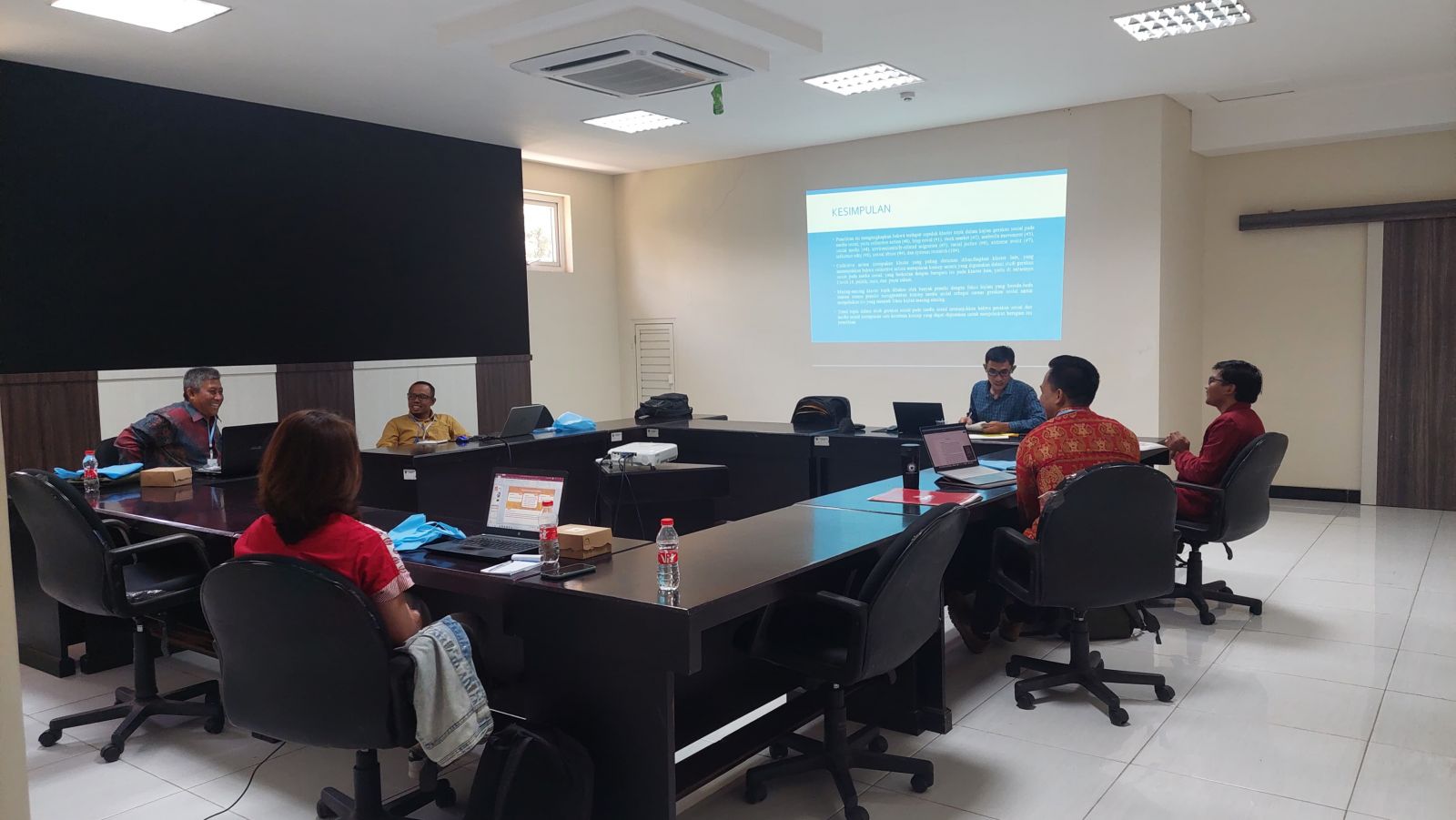
Malang, 25 November 2023. On 21-22 November 2023, the Faculty of Social and Political Sciences, UMM, held the second Indonesian Language International Seminar (SIBI). The second SIBI raised the theme: Post-Industrial Effects in the Climate Change Crisis. The II SIBI was held as a form of contribution from the academic world in discussing current issues, especially in discussing climate change, so that SIBI was held with the aim of facilitating lecturers and students in conveying critical ideas related to the problem of climate change which is increasingly real now. .
In this case, of course, the UMM Government Science Study Program lecturers participated in presenting seminar presentations on research results that had been carried out. One of them is Dr. Salahudin S.IP, M.Sc., M.P.A with research related to "Mapping Publication Trends on Social Movement in Social Media: A Systematic Literature Review". In the Results Seminar, Dr. Salahudin S.IP, M.Sc., M.P.A shared his views regarding the research he has carried out.
Indonesian society is currently in a technological society phase which is marked by the rise of the digitalization process and the creation of online public spaces, namely social media. So that this makes it easier for the dissemination and absorption of information throughout society. "Research related to Social Movements through Social Media is very minimally carried out by scholars in the world so it is important to carry it out, while the use of social media is very passive and there are many examples of successful cases of Social Movements through Social Media. For example, in Indonesia, the #Reformation on Corruption Movement is spreading everywhere. Apart from that, social media is also effective in viralizing an issue because it attracts the attention of many people. "But there are very few references related to Social Movements through Social Media, so this research is important to do." According to the explanation from Dr. Salahudin S.IP, M.Si., M.P.A related to the importance of this research, so that from the results of his research, Dr. Salahudin added that "It shows that the trend of publications about Covid, for example from 2018-2022, has increased sharply, which means this topic is interesting."
Apart from that, there was also a lecturer from the UMM Government Science Study Program who also took part in presenting the seminar presentation on the results of the research that had been carried out, namely Iradhad Taqwa Sihidi S.IP., M.A with research related to "The Rise of Symptoms of Digital Authoritarianism: Learning from Indonesia". In the Results Seminar, Iradhad Taqwa Sihidi S.IP., M.A shared his views regarding the research he has carried out.
Symptoms of digital authoritarianism in various parts of the world are increasing, including in Indonesia. The freedom to express opinions and express oneself in digital spaces is increasingly narrowing and is now facing big challenges. "This article specifically looks at the practice of repression in the digital space in Indonesia which strongly points to the phenomenon of digital authoritarianism. "This article fills the gap in previous studies which have not specifically looked at the symptoms of digital authoritarianism in Indonesia." According to the explanation from Iradhad Taqwa Sihidi S.IP., M.A related to the background of the research that has been carried out, so that from this research the results of the research are "The Internet, which was initially predicted to further expand the arena of democracy and strengthen community participation, has actually become an arena for violence - something that goes against the very essence of democracy. "The strengthening of digital authority in Indonesia shows that the country is ignorant of criticism and has many problematic policies." he added.
This SIBI activity is a form of output from the research results of UMM Government Science Study Program lecturers and is a form of commitment for the lecturers in the publication of scientific works. Contributions of thought and research can be realized in the form of Book Chapters, accredited International Journals, International Proceedings and Reputable International Journals.
